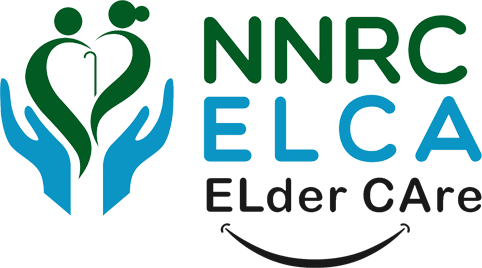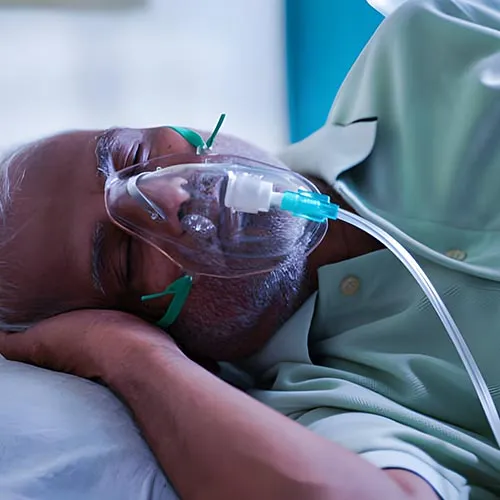The Importance of Post-Stroke Care at NNRC ELCA in Coimbatore
Introduction:
A stroke can be a life-altering event, affecting a person's mobility, communication, and independence. Post-stroke care is essential for facilitating recovery and improving the quality of life for stroke survivors. At NNRC ELCA in Peelamedu, Coimbatore, we understand the significance of comprehensive post-stroke care, including physiotherapy, dietary management, and ongoing support.
In this blog, we will explore the importance of post-stroke care, the role of physiotherapy exercises, the significance of a low-fat diet and controlled blood pressure, and why NNRC ELCA is the best elderly home center in Coimbatore, catering to the needs of stroke survivors and their families, including NRI individuals seeking quality care for their loved ones.
Understanding Post-Stroke Care:
Post-stroke care refers to the holistic support and treatment provided to individuals who have experienced a stroke. It encompasses various aspects of rehabilitation, medical management, and emotional support aimed at optimizing recovery and enhancing the quality of life for stroke survivors.
Why Is It Essential for Someone to Take Care of Stroke Survivors Always?
1. Physical Assistance:
Stroke survivors may experience physical limitations such as weakness, paralysis, or impaired coordination, making it challenging for them to perform daily activities independently. Having someone to assist with mobility, personal care tasks, and daily chores ensures their safety and well-being.
2. Communication Support:
Many stroke survivors experience speech and language difficulties, requiring assistance with communication. Caregivers play a crucial role in facilitating communication, using strategies such as alternative communication devices, gestures, or simplified speech to help stroke survivors express themselves effectively.
3. Medication Management:
Stroke survivors often require medications to manage conditions such as high blood pressure, diabetes, or blood thinners. Caregivers ensure that medications are taken as prescribed, monitor for side effects, and communicate with healthcare providers about any concerns.
4. Emotional Support:
Coping with the physical and emotional challenges of stroke recovery can be overwhelming for survivors. Caregivers provide emotional support, encouragement, and companionship, helping stroke survivors navigate the emotional ups and downs of their recovery journey.
5. Advocacy and Navigation:
Navigating the healthcare system can be complex, especially for individuals with disabilities or communication difficulties. Caregivers serve as advocates, accompanying stroke survivors to medical appointments, asking questions, and ensuring they receive the necessary care and support.
The Role of Physiotherapy Exercises After Stroke:
Physiotherapy plays a crucial role in post-stroke rehabilitation, helping stroke survivors regain mobility, strength, and function. Physiotherapy exercises focus on improving range of motion, balance, coordination, and muscle strength through targeted interventions such as:
- Mobility Training: Assisting stroke survivors in relearning how to walk, stand, and transfer safely.
- Strength Training: Using resistance exercises to strengthen weakened muscles and improve overall functional capacity.
- Balance and Coordination Exercises: Incorporating activities to enhance balance and coordination, reducing the risk of falls and improving stability.
- Gait Training: Teaching stroke survivors proper walking patterns and techniques to promote independent mobility.
- Functional Activities: Practicing everyday tasks such as dressing, grooming, and household chores to improve independence and quality of life.
The Significance of Low-Fat Diet and Controlled Blood Pressure:
Dietary management and blood pressure control are essential components of stroke prevention and management. Following a low-fat diet and maintaining controlled blood pressure can help reduce the risk of recurrent strokes and promote overall cardiovascular health.
Key dietary recommendations for stroke survivors include:
- Limiting Saturated and Trans Fats: Avoiding foods high in saturated and trans fats, such as fried foods, processed snacks, and fatty meats, to reduce cholesterol levels and prevent artery blockages.
- Emphasizing Fruits and Vegetables: Incorporating plenty of fruits, vegetables, whole grains, and lean proteins into the diet to provide essential nutrients and support heart health.
- Monitoring Sodium Intake: Limiting sodium consumption to reduce blood pressure and minimize the risk of stroke-related complications such as hypertension and fluid retention.
- Hydration: Staying adequately hydrated by drinking plenty of water throughout the day to support cardiovascular function and prevent dehydration, which can exacerbate stroke symptoms.
Why NNRC ELCA is the Best Elderly Home Center in Coimbatore:
1. Comprehensive Post-Stroke Care:
NNRC ELCA offers comprehensive post-stroke care, including rehabilitation services, medical management, and emotional support, tailored to the individual needs of stroke survivors.
2. Experienced Care Team:
Our facility boasts a team of experienced caregivers, including physicians, nurses, therapists, and support staff, dedicated to providing high-quality care and support to our residents.
3. State-of-the-Art Facilities:
NNRC ELCA is equipped with state-of-the-art facilities and amenities designed to enhance the comfort, safety, and well-being of our residents, including spacious living quarters, therapy rooms, and recreational areas.
4. Nutritious Dining Options:
We offer nutritious and delicious dining options, including low-fat meals and snacks, prepared by our culinary team to support heart health and overall well-being.
5. Personalized Care Plans:
Each resident receives a personalized care plan tailored to their unique needs, preferences, and goals, ensuring that they receive the individualized attention and support they deserve.
How NRI Individuals Join Their Parents in NNRC ELCA for Care:
NRI individuals seeking quality care for their aging parents can trust NNRC ELCA to provide compassionate and professional support. Our facility welcomes NRI families and offers assistance with the admission process, communication, and coordination of care. NRI individuals can rest assured that their loved ones are in good hands at NNRC ELCA, receiving the highest standard of care and support in a warm and nurturing environment.
Conclusion:
In conclusion, post-stroke care is essential for supporting recovery and improving the quality of life for stroke survivors. NNRC ELCA in Peelamedu, Coimbatore, stands out as the best elderly home center, offering comprehensive post-stroke care, including physiotherapy exercises, dietary management, and personalized support. With experienced caregivers, state-of-the-art facilities, nutritious dining options, and a commitment to excellence, NNRC ELCA is dedicated to enhancing the well-being of stroke survivors and providing peace of mind for their families, including NRI individuals seeking quality care for their loved ones.



